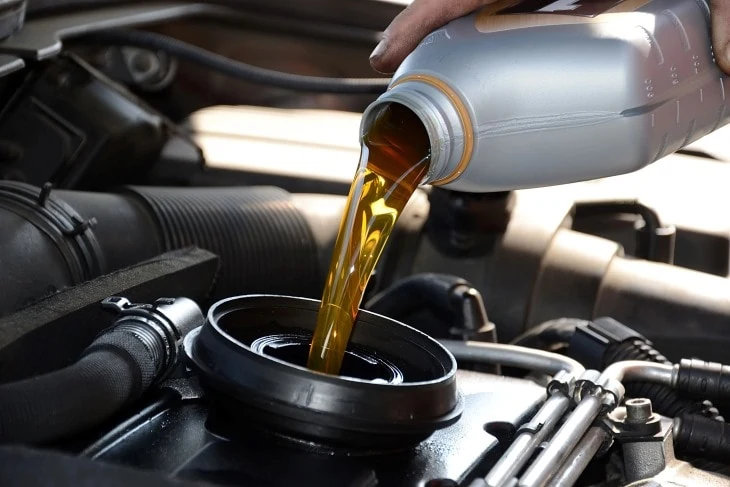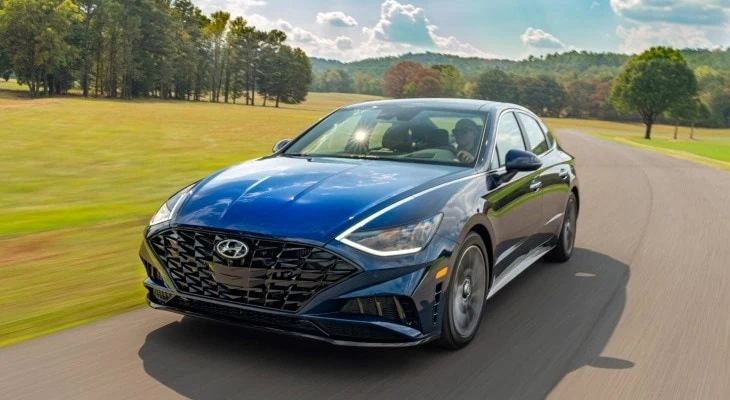Hyundai may be difficult to say, but these Korean cars are not difficult to buy. Hyundai is the world’s fourth largest automotive maker and is known for making inexpensive and easily available vehicles.
How long do Hyundai’s vehicles last? What is the best model? How about the worst? How reliable are they, anyway?
Hyundai makes a variety of vehicle models. On average, they last around 200,000 miles or about 16-17 years. In general, they have a longer than average lifespan. They also get above-average reliability ratings. The Hyundai Santa Fe is a standout and has won a J.D. Powers Award for quality in 2019.
Table of Contents
- How Many Miles do Hyundais Last?
- How Many Years Do Hyundais Last?
- How Reliable is Hyundai?
- What Are Common Problems with Hyundai?
- What is the Most Reliable Hyundai?
- What is the Least Reliable Hyundai?
- What is the Lifespan for Different Hyundai Models?
- Are Hyundai Engines Reliable?
- Why Are Hyundais So Cheap?
- How to Keep Your Hyundai Driving as Long as Possible
How Many Miles do Hyundais Last?
On average, the lifespan of a Hyundai is between 100,000-200,000 miles. However, a well-cared-for Hyundai can last well over 200,000 miles. In fact, some Hyundai owners report up to 500,000 miles on their vehicles!
The average lifespan for all vehicles is between 150,000-200,000 miles. So, Hyundai has average longevity.
How Many Years Do Hyundais Last?
The average vehicle is driven around 15,000 miles per year. So, do the math, and the average Hyundai will last 7-13 years, if not longer, with the right care and maintenance.
How Reliable is Hyundai?
Hyundai is so confident in the reliability of their vehicles, that they offer America’s best car warranty. Every new Hyundai comes with a 10-year/100,000-mile powertrain warranty.
According to RepairPal, Hyundai is the fourth most reliable car manufacturer out of 32 brands, after Honda, Acura, and Kia. Reliability ratings on RepairPal are based on repair frequency, repair costs, and repair severity.
The average annual repair cost for Hyundais is $468. This includes regular maintenance and unscheduled repairs. The national average annual repair cost across all vehicles is $652. Hyundai is well below the average repair cost for all vehicles.
Hyundais also visit the mechanic fewer times than the average vehicle. On average, a Hyundai will be in the shop 0.3 times per year for unscheduled repairs. The average across all vehicles is 0.4 times per year.
Repair severity is also an important factor. A repair is considered severe if it is at least three times the annual average repair cost. 10% of repairs on Hyundais are considered severe, compared to 12% across all vehicle makes and models.
What Are Common Problems with Hyundai?
In spite of the overall reliability and longevity of Hyundais, there are a few problems that are common to the brand.
Engine Issues
You may have heard of the infamous Hyundai engine tick. Several varieties of Hyundai engines make a steady ticking sound. The 1.8L engine is the most common culprit. While annoying, it isn’t necessarily a sign that something is wrong.
Sometimes, however, the ticking or knocking is a sign of connecting rod knocks or engine bearing failure. Utilize the extensive Hyundai warranty to get engine issues taken care of as soon as they come up.
Crash Sensor Defect
Hyundais built after 2009 used airbag control units (ACUs) manufactured by SF-TRW. The ACUs in these vehicles would fail to pass along the information from the crash sensors, and the airbags wouldn’t deploy.
Hyundai issued a recall on vehicles with faulty ACUs. The recalls are on the 2011-2013 Hyundai Sonata, and the 2011-2012 Hyundai Sonata Hybrid. Kia and Toyota also used the same ACUs in some of their vehicles and investigated the malfunction.
Anti-Lock Brake System Fire
An issue with a short circuit in the Anti-Lock Brake System (ABS) has caused Hyundais to catch fire. The electrical problem usually starts with either water leaking from outside the vehicle, or brake fluid leaking inside the vehicle.
This problem has occurred in Santa Fe Sport. Hyundai has issued a number of recalls on these vehicles to try to correct the problem.
Detached Seatbelts
The 2013 Sonata has a problem with the seatbelts detaching from the car frame during an accident. In 2017, Hyundai issued a recall on the 2013 Hyundai Sonata and the 2013 Sonata Hybrid. The problem is with where the seatbelt links to the frame.
What is the Most Reliable Hyundai?
The Hyundai Santa Fe won a J.D. Power Award for Quality in 2019. The Quality Award is given to the vehicle with the fewest reported problems across 100 vehicles. J.D. Power also puts Santa Fe in their top midsize SUVs.
What is the Least Reliable Hyundai?
We had to go back a ways to find the very worst Hyundais, but they are awful! First, the 2011 Hyundai Sonata had a whopping 3,059 complaints, five investigations, and 14 recalls. 37% of the complaints involved issues with the engine.
The second worst Hyundai would be the 2013 Hyundai Elantra. Top issues with the Elantra include problems with the transmission and the engine.
What is the Lifespan for Different Hyundai Models?
Hyundai makes a variety of vehicles, including sedans and SUVs. Here is the longevity information on Hyundai’s line of vehicles.
How Long Do Hyundai Elantras Last?
Expect your Hyundai Elantra to last 200,000-250,000 miles or 13-17 years. It is an extremely reliable compact car with a long lifespan. The Hyundai Elantra gets 4.5 out of 5 stars for reliability from RepairPal.
How Long Do Hyundai Sonatas Last?
The Hyundai Sonata is a sedan with low-repair costs, a long life, and excellent reliability ratings. Its lifespan is estimated at 200,000-250,000 miles or 13-17 years. It has above-average reliability, and lower than average annual cost to maintain and repair.
How Long Do Hyundai Santa Fe Last?
The Santa Fe is an award-winning, midsize SUV. You can expect it to last a long time with mindful driving and regular maintenance. Just how long? The average lifespan of a Hyundai Santa Fe is 200,000-250,000 miles or 13-17 years.
How Long Do Hyundai Accents Last?
The Hyundai Accent was awarded the best subcompact car by U.S. News and World Reports. Accents typically last around 200,000 miles or 13 years. The Accent is considered to be a reliable car, as well. RepairPal ranked it number five out of the top 10 most reliable subcompact cars.
How Long do Hyundai Tucsons Last?
The Tucson is Hyundai’s first SUV. It has a loyal following for a reason. It will typically stay on the road for about 200,000 miles or 13 years. However, some Tucson owners report vehicles with 250,000 plus miles!
However, the engines from model years 2012-2014 have reported failures. Make sure to avoid those particular model years.
Are Hyundai Engines Reliable?
In most models and years, Hyundai engines are considered reliable. In fact, the engine may last up to 300,000 miles without a problem! There are certain model years that are known to have problematic engines, however.
In particular, avoid the 2.4l engine that is standard in many Hyundais from 2011-2016. These engines may fail and, there are recalls in place. However, some of these models may fall under Hyundai’s ten-year warranty.
Why Are Hyundais So Cheap?
Even though Hyundais are considered an inexpensive cars, their prices aren’t that much lower than Honda or Toyota. Let’s compare the starting prices of comparable foreign cars.
| Car | Price for a New Car |
| Hyundai Elantra | Starting at $19,850 |
| Honda Civic | Starting at $21,700 |
| Mazda 3 | Starting at $20,650 |
| Toyota Corolla | Starting at $20,075 |
There are several reasons why Hyundais are slightly lower priced than their competitors.
Hyundai is Trying to Get a Standing in the Market
Since Hyundai is a newer foreign car brand, they are still trying to get their share of the market. In order to do this, they sell their vehicles at a lower price to give customers an extra incentive to buy.
Their lower prices probably won’t be around forever. Once they establish themselves in the vehicle market, the prices will probably go up.
Hyundai Offers Cheap Lease Deals
There are a lot of leased Hyundais due to the incredible lease deals they offer. Overall, this makes Hyundais more affordable to buyers and leasers.
So, even though Hyundais may be less expensive than their competitors, they are still a quality vehicle that is made with similar quality of materials.
How to Keep Your Hyundai Driving as Long as Possible
We all want to keep driving for as many miles as possible! Here are some practical ways to keep your Hyundai on the road.
Follow the Suggested Service Schedule
Check your owner’s manual. This should include a suggested service schedule. Follow it closely. Put reminders in your calendar. This is your best bet for vehicle longevity.
Change the Filters
Routinely change the filters in your vehicle according to the schedule in your owner’s manual. The filters that need to be changed are:
- Oil Filter – The oil circulates through the engine to keep it clean. The debris then get caught in the oil filter. Change the filter as recommended.
- Engine Air Filter – The engine air filter catches airborne particles before they reach the engine. In order to maintain proper engine air intake, change the air filter every 30,000-50,000 miles.
- Fuel Filter – The fuel filter keeps particles from traveling from the gas tank into the engine compartment. Change the fuel filter every 20,000-60,000 miles, or as recommended.
- Cabin Air Filter – Keep your air fresh and clean in the cabin with regular cabin air filter changes, around every 12,000-15,000 miles.
Top off Fluids

There are many fluids in your vehicle that keep it running smoothly. Maintain fluid levels for the best performance, gas mileage, and overall vehicle longevity.
- Engine Oil – Engine oil should be changed every 3,000-5,000 miles, and topped off if it gets low.
- Brake Fluid – The brake fluid gets pushed through the brake lines to help the car stop. If it leaks or gets low, it could be a huge safety issue.
- Transmission Fluid – Put the car in neutral with the engine running to check the transmission fluid.
- Coolant – Coolant keeps the engine from freezing in the winter and from overheating in the summer.
- Power Steering Fluid – This important fluid allows you to turn your steering wheel easily.
- Windshield Wiper Fluid – This fluid may not seem as important as the others, but visibility on the road is vital!
Final Thoughts
Hyundai produces competitively priced vehicles with excellent longevity and reliability. If you are the proud owner of a Hyundai, you can expect it to stay on the road for around 200,000 miles, or 13 years, with the right care and maintenance. Happy driving!

